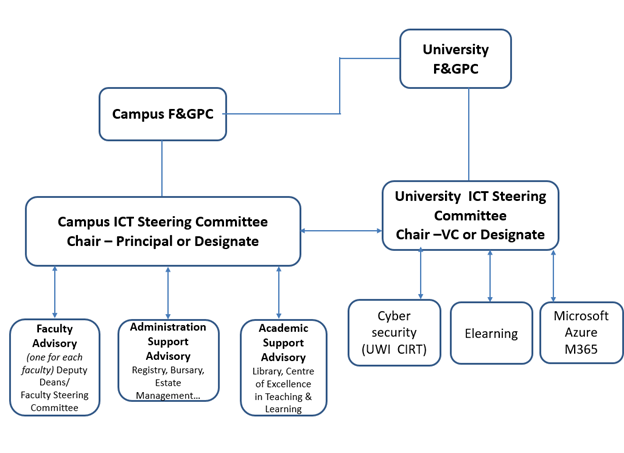
UWI ICT Governance
ICT Governance defines the alliances, processes and decision-making structure to ensure the alignment of ICT and business strategies and the requisite performance, management and accountability to maximise the likelihood and minimise the risk of obtaining the benefits from key ICT expenditure and resources.
Effective ICT Governance will address three (3) questions:
- What decisions must be made to ensure effective management and use of ICT and guarantee the realisation of value from ICT investments?
- Who should make these decisions?
- How will these decisions be made and monitored?
The UWI ICT Governance Structure

At the Campus Level
ICT Steering Committee at each campus with a chairperson appointed by Principal. This steering committee includes the chairperson of each advisory committee, a representative from the student guild, the Campus CIO, the Campus Bursar and the Campus Registrar
The role of the advisory committees is to address ICT services necessary for the strategic development of the faculty or administrative/academic support groups to function for the strategic development of these groups.
Campus ICT Steering Committee will be responsible for making final decisions on the following areas:
- Campus ICT Strategy
- Campus specific Applications
- Campus specific ICT Policies
- Campus project selection/priority
At the University Level
University ICT Steering Committee at the University level that is responsible for ensuring effective ICT governance and maximizing value from ICT investments. Representatives include University and Campus CIOs, Chairs of the Campus ICT Steering Committees as well as selected members of Executive Management representing Administration, Undergraduate, Graduate Studies and Planning.
University ICT Steering Committee is responsible for making final university-wide decisions on the following areas:
- University ICT Strategy
- ICT Enterprise Architecture
- Enterprise Applications
- University ICT Policy
- University Project Selection/Priority
